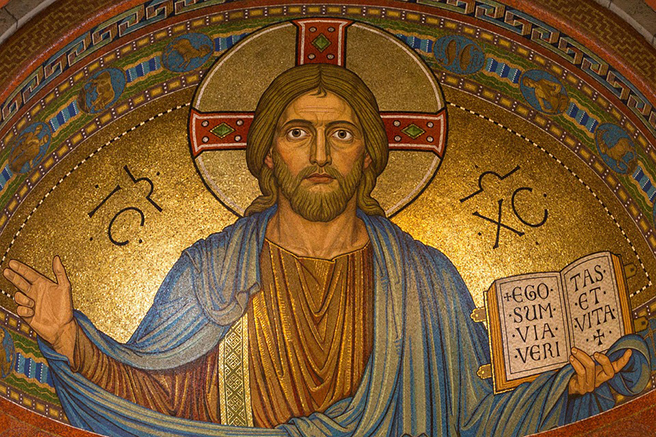
When someone studies the history of Christianity from its inception and really tries to be objective about it, he or she will inevitably discover how screwed up and tainted the Jesus Story has become over the centuries.
One way is how his teachings have been misconstrued as a formula for salvation. In the grocery store recently, a little girl, whose parents were standing close by, handed me a small card and said, “Would you like a Gospel tract?” I obliged and read it over. On it was a very brief explanation (with “proof” text Bible verses) of the major problem in life and its solution: Life is short, death and judgment is sure, sin is the cause, and Christ is the cure. The call to action was to pray a 17-word prayer to receive Jesus as one’s personal Savior. The Jesus epic had been boiled down to a “Get out of hell free” card in the game of life.
The source of this type of mentality cannot be traced to one fundamentalist church but rather to a long line of historical events that caused Jesus’ original message to evolve into our modern Western view of Christianity. These changes were shaped by figures like the Roman Emperor Constantine, the 4th century theologian Augustine, the dawn and development of the Catholic Church, medieval theologians like Anselm, and the many Protestant reformers like Calvin and Luther who attempted to steady a corrupted, wind-blown Christian ship, only to steer it into other just-as-stormy seas.
The way to gain clarity is to study this history and evolution of Christianity—preferably with a nice craft beer in hand! For instance, we in the West are ignorant of the differing views of Eastern Christians that developed independently of the Catholics and Protestants. Many of these views line up with the beliefs of the “losers” of Western Christianity, e.g. the reformers whose views didn’t prevail, like Julian of Norwich, the Moravians, and the Anabaptists. One differing view is over the Western concept of original sin. It is not “biblical” or historical, argue the voices of the Eastern Orthodox:
“This doctrine of ‘original sin’ is a hideous one and found its way into the Western theological construct through the flawed Latin text of St. Paul’s Epistle to the Romans having passed through the dark imagination of Augustine.”(1)
Another is the penal substitutional atonement theory on the meaning of Jesus dying on the cross. When examined carefully and logically, it is a nonsensical, abhorrent tenant that fuels the fire of unbelief and atheism. Again, the Eastern voices declare:
“The Western Church has through a long process of theological convolution over the course of many hundreds of years finally succeeded in transforming the biblical God of love into little more than a petty tyrant.”(2)
I could go on and on. And I have in the book, Craft Brewed Jesus, which traces the roots of modern fundamentalism, evangelicalism, and traditional Christianity. It makes the case that by uncovering this history we never knew, we can tap a new spirituality we really need. One that looks on all of humanity first as pure (made in God’s image), not depraved. Then, if people lose their way, it looks on them as immature and in need of patient restoration, not judgmental retribution; whereas no one is written off as on the brink of eternal damnation. This is because our default destination is not hell, but rather a path to Love.
This freshly tapped and historically-grounded spirituality is one that might help us get out of the modern religious/political trap of an “us vs. them” mentality and help heal our differences.
(1) – Robert Arnold, Orthodoxy Revisited, p. 112.
(2) – Ibid, p. 121. Also, see Brad Jersak’s studies at www.bradjersak.com


As Baha’is, our beliefs about Jesus seem (to us, anyway) perfectly congruent with the teachings by and about Jesus in the Bible, but we have problems when we have discussions with people who belong to most of the current western Christian denominations. We would be happy if people would just admit that a diversity of interpretation is possible, and that historical factors caused particular interpretations in the early and medieval church to dominate western Christianity.
Yes, Michael Turner, we need to admit that a diversity of interpretations is possible and not threatening! Thanks for weighing in…. Sorry, your comment got lost and just went live. 🙁